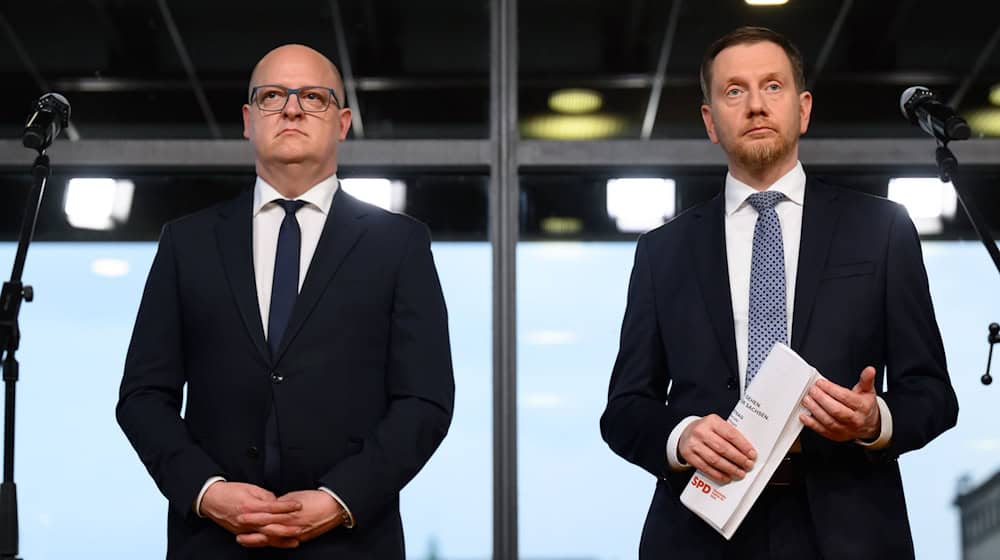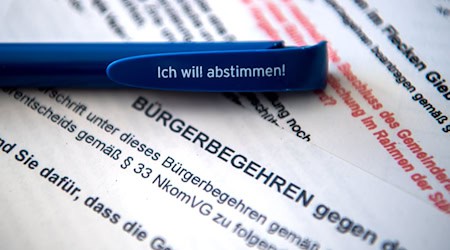The black-red coalition agreement presented in Saxony is causing widespread criticism and heated discussions. "There are a lot of flowery words in the coalition agreement presented today, but unfortunately nothing concrete," criticized the Sahra Wagenknecht Alliance (BSW). The party fears that there will be no changes with the new government. Neither on the topic of migration, nor on the topic of reducing bureaucracy.
Similarly critical words came from AfD leader Jörg Urban. He expects that the coalition will not survive five years.
Criticism from all sides: Hardly any praise for the coalition agreement
Left faction leader Susanne Schaper explained that her party was ready to achieve something for the people of Saxony away from the party dispute. The most urgent task is the new state budget, in which there must be no cuts in the social and cultural sectors. In addition, the municipalities must be better equipped as quickly as possible.
The current Environment Minister Wolfram Günther (Greens) is skeptical about the plans of the black-red coalition and describes them as a "pre-Christmas wish list" without a government majority in the state parliament. A majority for the election of the Minister President or the budget is not in sight. It is positive that the CDU and SPD want to build on previous progress in energy policy. However, the CDU must explain to its wind turbine opponents why it is committed to the expansion of wind turbines in the coalition agreement.
Economic concerns and bureaucratic obstacles
The business community also voiced its criticism. The Saxon Chamber of Industry and Commerce criticized: "The published key points do not convey the spirit of optimism that is urgently needed in view of the economic situation." The task is great and the financial scope is narrow.
In an open letter to the CDU and the Minister President, the Saxon Association of Skilled Crafts questioned "whether the importance and significance of the economy are being given sufficient space". The top priority must be to restore the competitiveness of the business location. Among other things, the planned qualification period is criticized because of the bureaucratic burden and cuts to the skilled workforce.
In addition, the Paritätische Wohlfahrtsverband Sachsen criticized the plans for a compulsory pre-school year in particular. The funds should be better invested in early childhood education, for example to improve staffing ratios in nurseries, explained state director Michel Richter. Such an approach would be more effective for the transition from nursery to elementary school. He pleaded for the promotion of low-threshold, family-oriented offers instead of relying on coercion.
Between scepticism and cautious praise
The German Trade Union Confederation (DGB), on the other hand, praised the fact that the coalition is ruling out cooperation with the AfD. At the same time, it called for more intensive cooperation between the democratic parties in order to develop solutions for all people in Saxony.
Copyright 2024, dpa (www.dpa.de). All rights reserved










